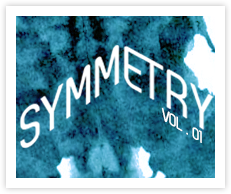

Bell Canada’s fading Polyjuice Potion
Melanie Brister // November 2, 2012

The polyjuice potion was first introduced in J.K. Rowling’s Harry Potter and the Chamber of Secrets. It is used to assume the appearance of someone else for exactly one hour. In this second Harry Potter book, Harry and Ron use it to transform into Crabbe and Goyle to question Draco about the Heir of Slytherin. Though it proves to be extremely useful, if one is not too conscious of time, they may get caught in their deceiving endeavours.
Bell Canada is one of Canada’s largest media conglomerates, and although we understand this to mean that ‘they own a lot of stuff’, we are never entirely certain where their ownership lies. Marketing campaigns highlight the company’s services in the phone, TV, and internet industry but uncertainty lingers in the mysterious practices of Bell Media. On Bell’s website, they attempt to be transparent by displaying their ownership through TV and Radio station logos, a strategic representation of their ownership that looks significant yet not overpowering. The website, however, fails to recognize Bell Canada’s ownership of newspapers, magazines, CTV International Bureaus, and publishing and production houses (most of which are listed here).
I didn’t know that my favourite national media source, the Globe and Mail, was owned by Bell Canada. And for those of you who share an interest in science and animals, Bell owns Discovery, Discovery World, and Animal Planet. And if you or your family watch CTV news anywhere across Canada, you can be certain that Bell owns that too. Oh, and sports, Bell owns all TSN channels as well.
This is all significant because of media concentration. If our news all comes from the same media mogul, then information lacks diversity and alternative perspectives. Thus emerges the small media company that exists to provide unique perspectives in attempts to demassify. Yet because of their smallness in size compared to media conglomerates, they often find themselves struggling for a mere teaspoon of power.
You may have noticed that Bell recently put in a bid to buy Astral Media, which owns 83 radio stations, and multiple Canadian TV stations. This would mean even bigger ownership for Bell, and for consumers, even more media concentration. Those who understood what this additional ownership could mean protested through signing the www.stopthetakeover.com petition. Fortunately, the Canadian Radio-television and Telecommunications Commission (CRTC) rejected Bell’s bid stating that “this transaction would have resulted in an unprecedented level of concentration in the Canadian marketplace and we had grave concerns that BCE would be able to use its market power in an unfair manner and engage in uncompetitive behaviour.”
With media attention surrounding the CRTC decision to reject Bell’s interest in purchasing Astral Media, Bell Canada’s polyjuice potion continues to fade. More and more people are becoming aware of Bell’s ownership and the power that stems from owning a huge piece of Canadian media. This is a good thing; awareness of Bell’s clout makes consumers more critical of their news coverage. If there is one thing that media consumers should practice, it is to always check where information is coming from. Unless Bell receives some form of Felix Felicis (often referred to as Liquid Luck) they will frequently find themselves in the forced and unpleasant situation of divulging their darkest secrets under the influence of Veritaserum.
____________________________________________________________________________________________
 Melanie is currently a fourth year public relations student at MSVU. She likes reading newspapers, eating cookies, and spending quality time with her twin.
Melanie is currently a fourth year public relations student at MSVU. She likes reading newspapers, eating cookies, and spending quality time with her twin.
Melanie’s interests in public relations include communications theory, new media, and the cultural effects that the media has on society today. She hopes to complete her degree and continue her education in media studies.
-
Laura Kennedy
-
Melanie Brister
-
Melanie Brister
